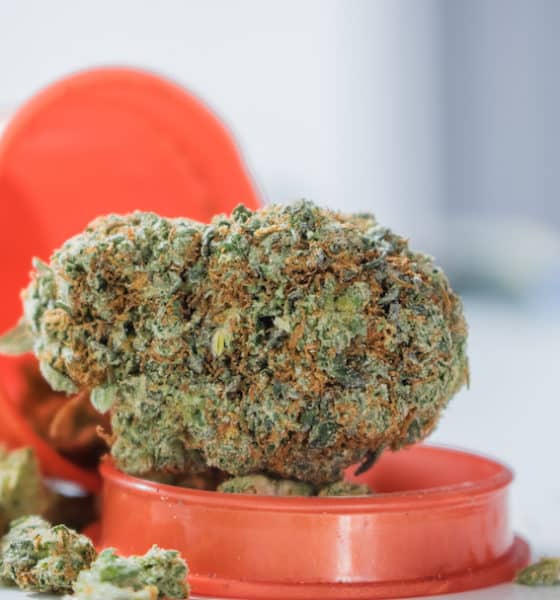Although the NFL remains one of the most physical, injury-laden league in professional sports, it still hasn’t given any leeway in terms of medicinal marijuana use by its players. The league, as a whole, remains stringent on marijuana use, and unfortunately, that doesn’t look like it will be changing anytime soon. While there are loopholes in the NFL’s drug policy, for therapeutic medicinal cannabis use, the outlet has yet to be successfully exercised, as once again, the NFL forbids injured player’s request for medical marijuana.
Mike James’ Request Denied
Mike James, a current NFL free agent and former Tampa Bay Buccaneers and Detroit Lions running back, has made NFL history, in his own right. Last month, the former sixth-round pick became the first player in league history to file for a therapeutic use exemption for medical marijuana.
But last Thursday, his request was denied by league officials.
James had been reliant upon opioid painkillers since a Monday night football game against the Miami Dolphins after the running back broke his ankle on a goalline plunder. In an interview with CNN’s Chief Medical Correspondent, Dr. Sanjay Gupta the running back reveals he was addicted to the cocktail of pills he was prescribed in just a matter of weeks.
According to James, the pills caused him to lose a part of himself.
“I never had something where I could be coherent and still have pain relief,” James revealed.
However, the ex-Buc vowed to get clean for his sons. Growing up, his father was in and out of prison on various drug stints, and he didn’t want to set the same example for his children. That’s why, at first, medical marijuana seemed like such a far-fetched idea.
“I thought, ‘Weed? No, that’s a street drug,” James said in the interview. ” I didn’t even want to hear what it had to offer.”
However, after succumbing to the inevitable physical addictions of his prescribed opioids, James decided to give it a go. And in February of 2014, he tried medicinal cannabis for the first time. And he had an epiphany.
“I felt like I was beginning a new life,” James said.
But despite his attempts to change, James has failed several drug tests for marijuana, and his exemption has been denied by league officials. Instead of supporting his effort to get clean, the NFL has admonished it.
“Our job is to find the best medical science to support your therapeutic use exemption,” said DeMaurice Smith, the executive director of the NFL Players Association.
While plenty of that information has been made available, the NFL still remains behind the curve— and James’ career now hangs in the balance.
“My career is at great risk,” the running back admitted to Gupta.
The NFL Won’t Budge on Medical Cannabis
While the NFL may still classify the plant as a “controlled substance,” many within the league—and outside of it, believe athletes should be allowed to use medicinal marijuana.
According to a Yahoo News/Marist Poll published last year, 69% of Americans approve of a professional athlete using marijuana for pain, and 67% of pollers believing prescribed opioids are far worse that prescribed marijuana.
Additionally, many ex-players have championed the use of the plant for pain-management and concussion treatment. Ex-Jaguars offensive lineman Eben Britton believes marijuana could be a big part of the league’s medical program going forward and could be an important tool to help preserve players’ careers.
While the NFL remains behind the eightball on medical pot, despite being one of the most injury-plagued sports in America, other sporting leagues are starting to come around. The UFC essentially allows their athletes to use cannabis for recovery, and even the NBA has said it will consider removing the plant from its banned substance list.
Now, it’s time for the NFL to get off the opioid train, and hop onto the medical pot express. If not, the league could become, effectively extinct.














